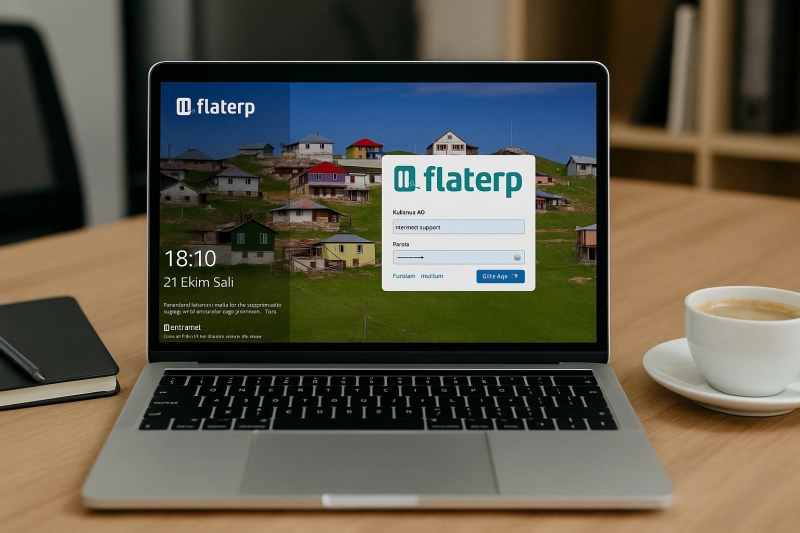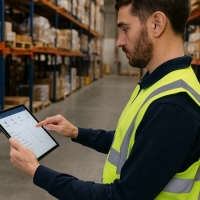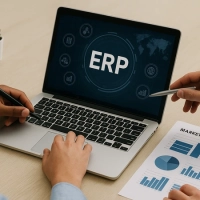
- 1️ Can this ERP system be customized to the needs of my industry?
- 2️ Cloud-based or local server installation?
- 3️ Is it possible to access from mobile devices?
- 4️ How do integrations work?
- 5️ What do reporting and analysis tools offer?
- 6️ How do the training and support processes progress?
- 7️ What is the scalability of the system?
- 8️ How is security ensured?
- 9️ Who does the updates and maintenance?
- 10 How does the post-demo support process proceed?
- Conclusion
1️ Can this ERP system be customized to the needs of my industry?
Every business's processes are different.
Flaterp ERP works with modules specific to different sectors such as retail, manufacturing, service and distribution.
During the demo, ask how modules and workflows specific to your industry can be configured.
Flaterp ERP easily adapts to the growth of your business with its modular structure.
2️ Cloud-based or local server installation?
Today, most businesses are moving to cloud ERP solutions.
Flaterp Cloud ERP allows you to access your data from anywhere via a secure connection.
Thanks to the cloud infrastructure, maintenance, update and data backup processes are automatically managed by Flaterp.
Get detailed information about the system's cloud architecture during the demo.
3️ Is it possible to access from mobile devices?
Mobile access provides a great advantage for field sales teams, warehouse workers and managers.
Flaterp Mobile ERP allows users to access all data via smartphone or tablet.
During the demo process, be sure to test the user-friendly structure of the mobile interface.
Thanks to Flaterp's web-based design, access is possible from any device without any additional installation.
4️ How do integrations work?
Real business visibility is only possible with the integrated operation of systems.
Flaterp ERP provides full integration with e-invoice, e-archive, e-delivery note, accounting and e-commerce platforms.
During the demo, ask to see how Flaterp ERP exchanges data with the software you use.
Thanks to these integrations, your data is collected in a single center, reducing errors.
5️ What do reporting and analysis tools offer?
Data is needed to make the right decisions.
Flaterp ERP reporting module provides detailed analysis of sales, inventory, finance and production processes.
You can speed up your decision-making processes with graphs, dashboards and performance indicators.
Evaluate business intelligence tools by testing these reports during a demo.
6️ How do the training and support processes progress?
An ERP system is not just software but a transformation process .
Flaterp support team is with you every step of the way, from pre-installation training to live use.
During the demo process, be sure to ask about the training content, user support line, and maintenance policies.
Flaterp ERP's Turkish user support significantly shortens the adaptation time of businesses.
7️ What is the scalability of the system?
As your business grows, the system needs to keep up.
Flaterp ERP offers user, branch and module-based expansion opportunities.
You will not experience any performance loss when new departments or locations are added.
Don't forget to test the system's performance in growth scenarios during the demo.
8️ How is security ensured?
Security is one of the most important issues in cloud-based ERP systems.
Flaterp ERP uses high-level encryption (AES-256) and multi-layer authorization infrastructure for data security.
Your data is kept on secure servers in Türkiye.
Be sure to ask about security certificates, backup policies, and access management during the demo.
9️ Who does the updates and maintenance?
ERP updates are critical for both security and performance.
Thanks to its cloud-based structure, Flaterp ERP performs all updates automatically in the background.
This way, your IT team saves time and your system always works with the most up-to-date version.
10 How does the post-demo support process proceed?
Even after the demo is over, Flaterp will not leave you alone.
Flaterp ERP Project Team provides step-by-step guidance from system installation to live use.
Additionally, your dedicated customer representative will provide you with support whenever you need it.
This approach shows that Flaterp works with businesses as a long-term solution partner.
Conclusion
An ERP demo is not just an introduction; it is a step that shapes the future of your business.
With its industry-specific solutions, strong integration structure and user-friendly interface, Flaterp ERP offers clear answers to businesses that ask the right questions.
Discover now: Request a Flaterp ERP Demo
























